In the summer we moved here with a six and an eight year old, one of the first things we did was to climb Cradle Mountain (having climbed it as uni students shortly after our marriage). I feel guilty that I’ve only climbed this friendly giant eight times. Apart from anything else, each climb is different – different sky, different clouds, different shadows. New aspects of the overall scene strike you each time you summit. So much depends on the weather or the time of day you are there.
But “Cradle” is so much more than just that mountain. The name encompasses a variety of other wonders, such as the Plateau area, with its masses of tarns and fabulous winter skiing for children (we used to walk up carrying XC skis), the magic of the Ballroom Forest, the drama of the Hanson’s Peak approach, the plethora of hidden tarns in interesting crannies within a kilometre’s radius of the summit, and the lines of ridges emanating from the main massif, each with interesting views into gorges below. The forest at the back of Waldheim (or any other approaches to the high land) is “enchanted”; the forest officially called “enchanted” (the one behind the lodge) is not the only one to harbour a magic spell. Wombats forage here; fungi flourish. In autumn, tiny orange leaves make a wonderful tapestry across the pattern of tree roots that weave across the path.
Ancient trees over a thousand years old still stand as guardians of the wilderness they inhere. And what about the other mountains within cooee of the main attraction? Campbell, Kate, Emmett, Barn, Brewery Knob or Recondite Knob, to name “just” the Abels? In the photo two above, you can see Emmett peeping out behind the cradle part of the Big One, and Barn poking its distinctive head out of the yellow to the right. If Cradle is the only thing you have eyes for, then climb these to get a different view of the only thing your heart can hold.
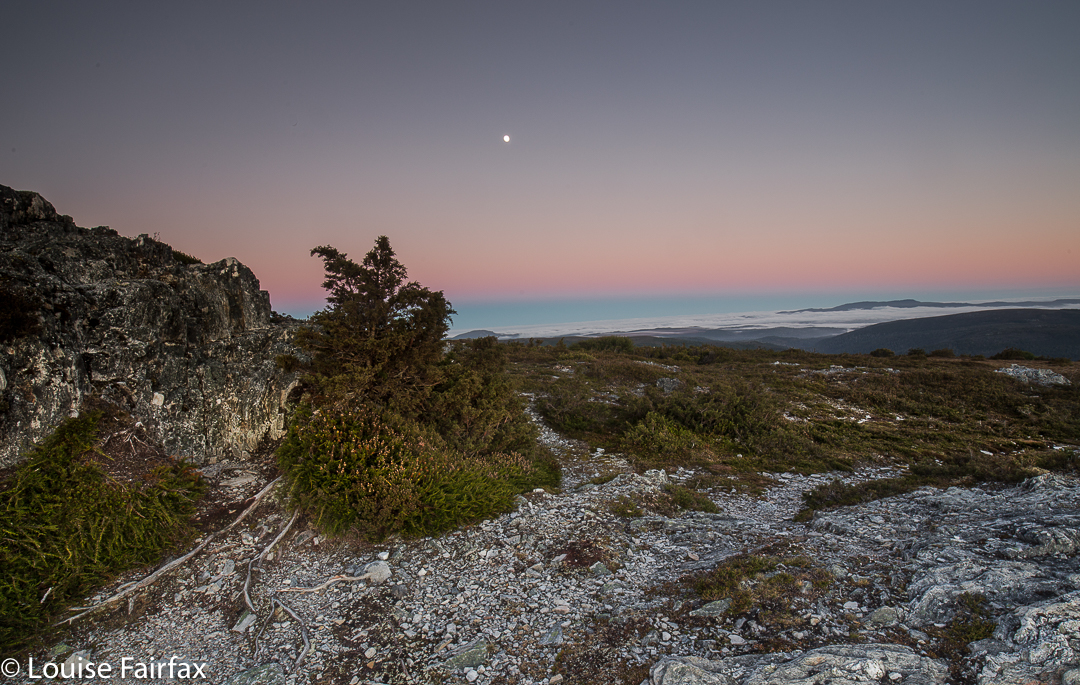
To say you have “done” Cradle after a single visit is like saying you’ve “done” King Lear or Pride and Prejudice after a single reading. After one, you’ve barely scratched the surface. I’ve read Lear at least twenty times (never counted, possibly more … one just keeps reading, and gaining more each time), but I sure haven’t “done” Lear, and I will die before I have “done” Cradle, because she has so much more to offer than a single person can hope to reap, even in a lifetime.
Maybe you need high drama: huge pointed peaks and a giddy height if you read the numbers on an altimeter. Although height is, of course, absolute, it is also a relative thing, and a mountain rising hugely from sea level (e.g. Wellington), or from land that is still not very high, can make a far bigger impression than some peer with a greater absolute altitude. But if you do need your peaks to be over 4,000 ms, well, good luck to you. That keeps “my” Cradle from getting too crowded. I am reminded of the story told by our employer in England once, of when he took a man from a nation whose citizens are renowned for wanting everything to be big and bold to the Lake District, and proudly showed him a magnificent lake of subtle and delicate beauty. The man was totally dismissive: “Why Richard,” he bragged, “we have much bigger and better than that back home.” Richard, normally a man who could argue any point, had no answer to that mentality, preserving the story only to laugh at people who thought like that. Thomas Kuhn would say they had reached a paradigm chasm (or ‘revolutionary’ divide), across which there is only partial communication due to the different assumptions each side makes as a foundation to what they think, say or do.
Let us return to this notion of having “done” a mountain, or Tasmania or whatever. As the girl serving us on our way home said, it denotes not a desire to see anything, or to experience anything properly, but rather, to tick a box: “Done Cradle Mountain”; “Done Tasmania” (I’ve heard that one too, from someone who spent a week here). Such ticking apparently earns you bragging rights amongst certain groups of people. Terry Eagleton, literary critic and social commentator of excellence, talked of (in disparaging tones) “the commodification of experience”, whereby marketers had taken up the idea of parcelling and selling experience so people could purchase / consume it. (Commodification is the turning of something that does not normally have a market value into something which is a commodity and can be sold). All of a sudden, your holiday to see Lake St Clair became the “Lake St Clair experience”. Tick. Hapless shopper-zombies were to tour the world, purchasing these “never to be forgotten experiences”, outdoing each other in the outré and adventurous nature of each one. Their lives could not possibly be complete without the X experience, now purchasable for the price of Y (a very big number). Poor shallow, frenetically-gathering experience hunters. Always worrying that the experience they just purchased would not cut it amongst the audience they were trying to impress. Perhaps they accidentally purchased last year’s must-do experience. I’m afraid this blog is failing you, as I have lost track of what is the latest experience you are supposed to have had, and so cannot help you.
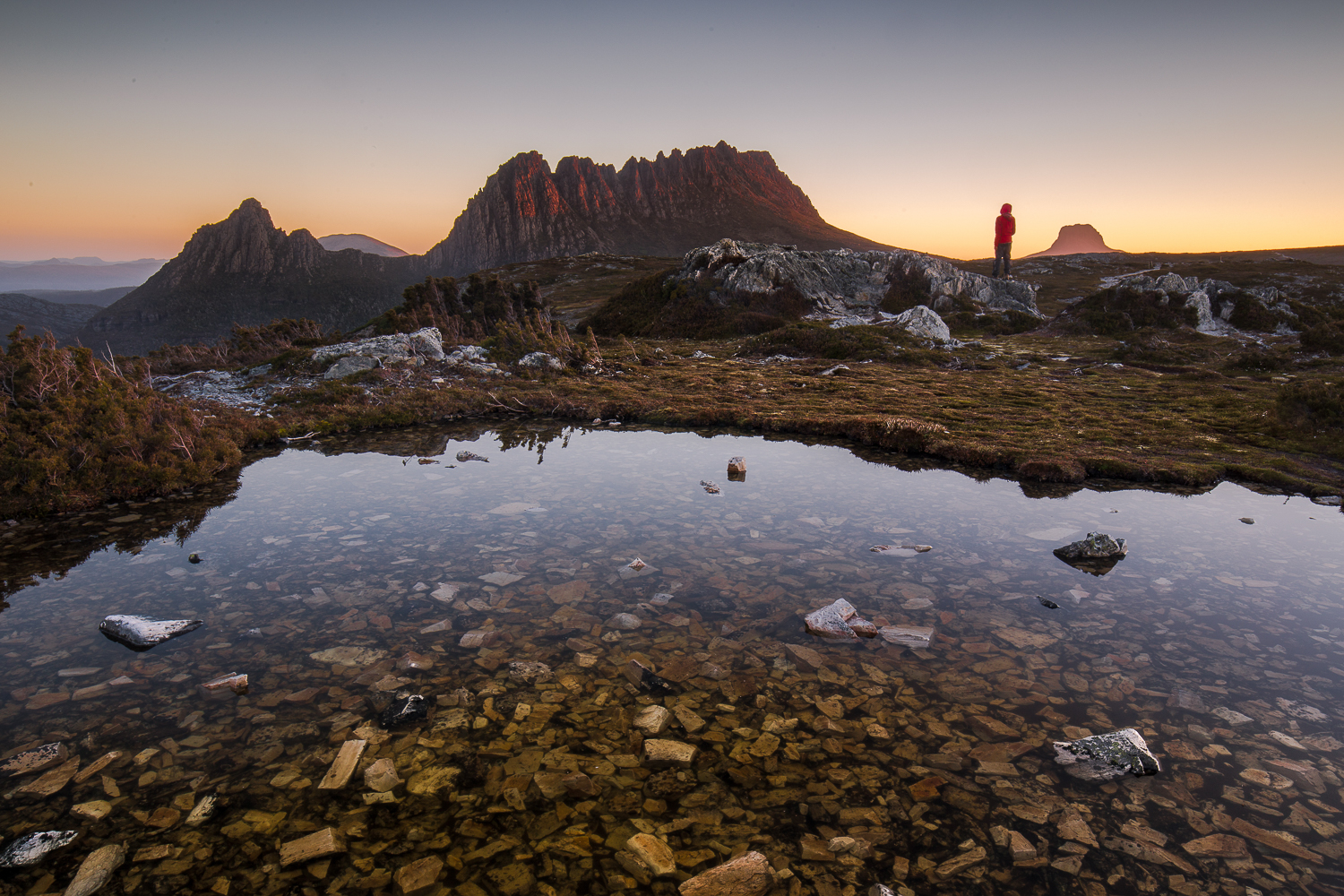
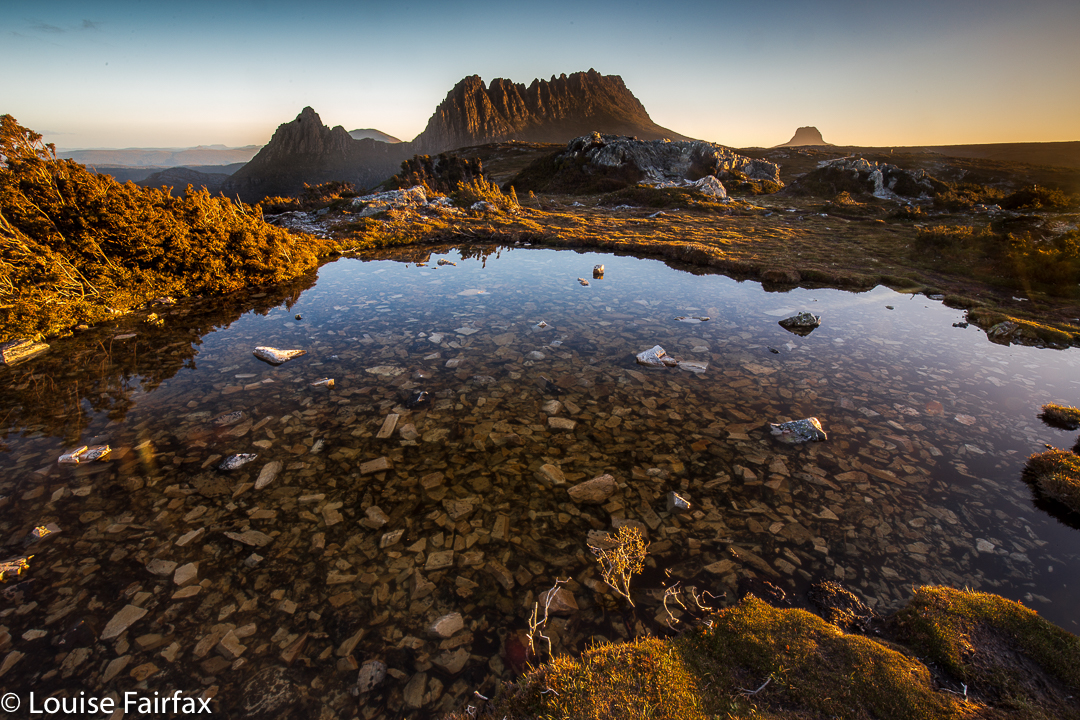
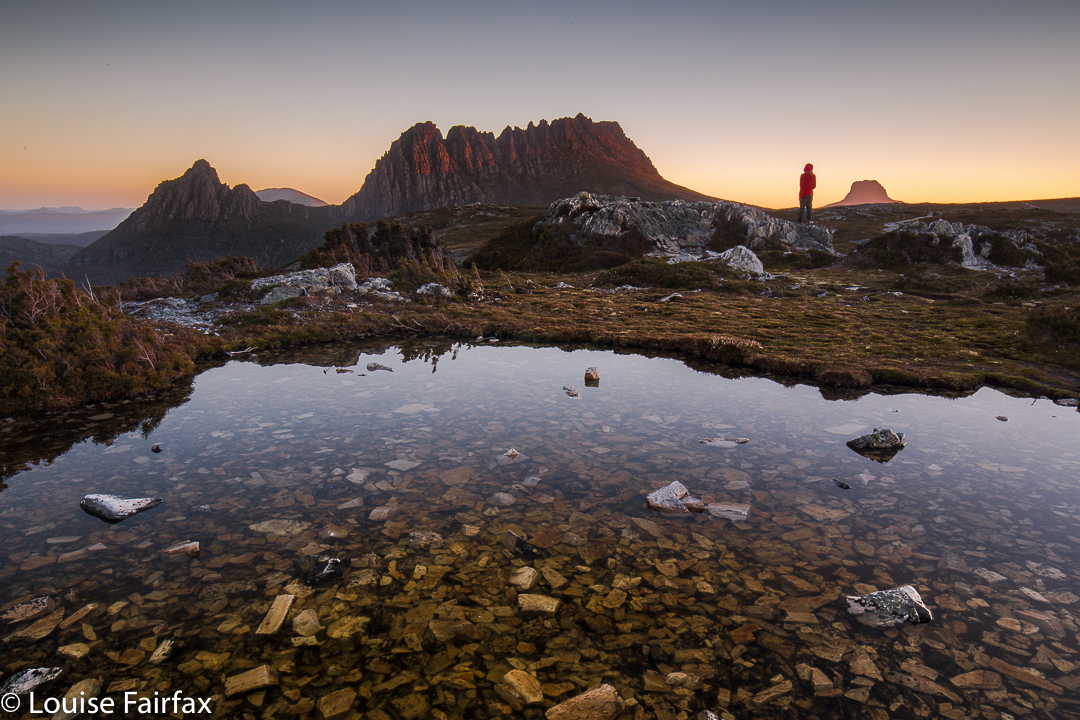
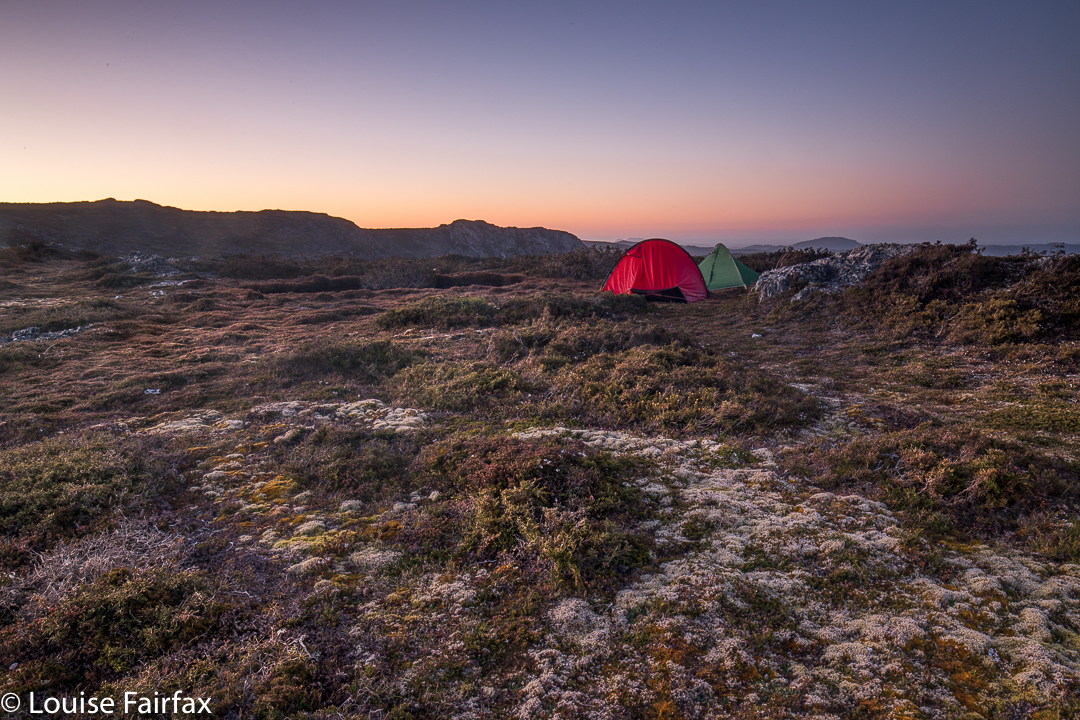
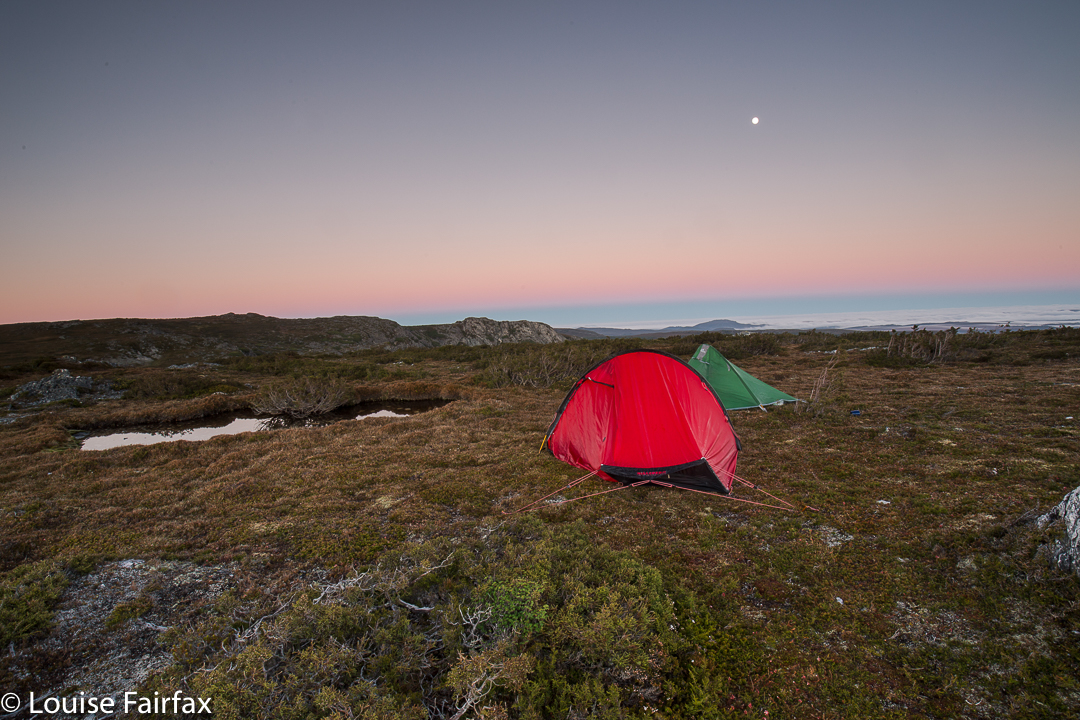
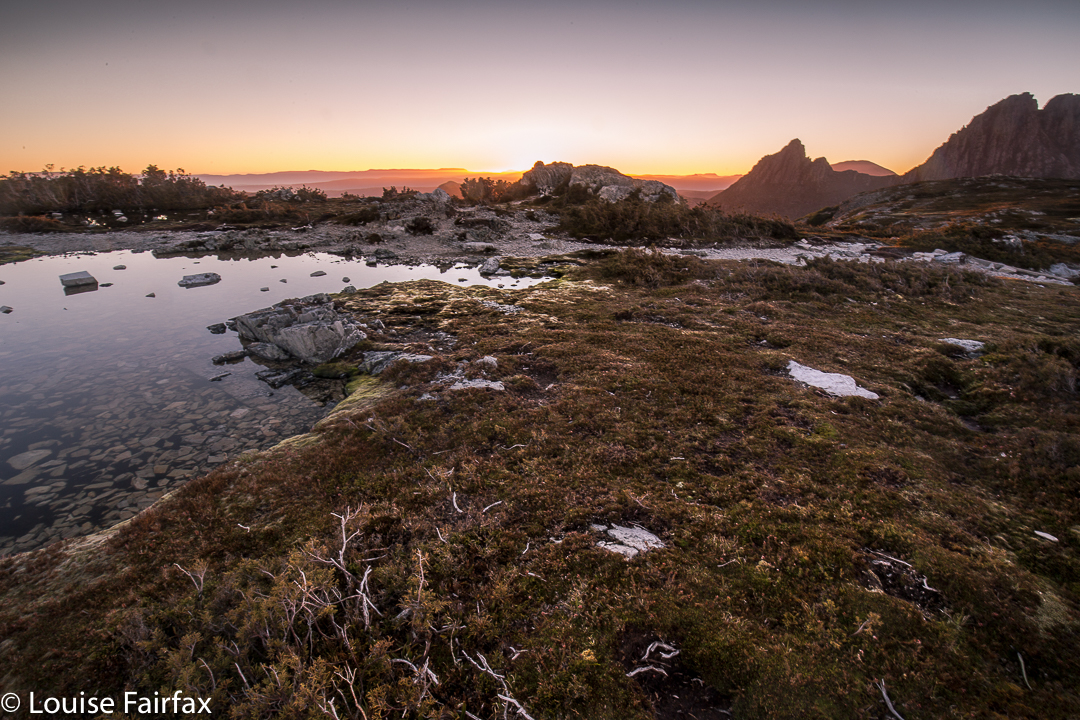
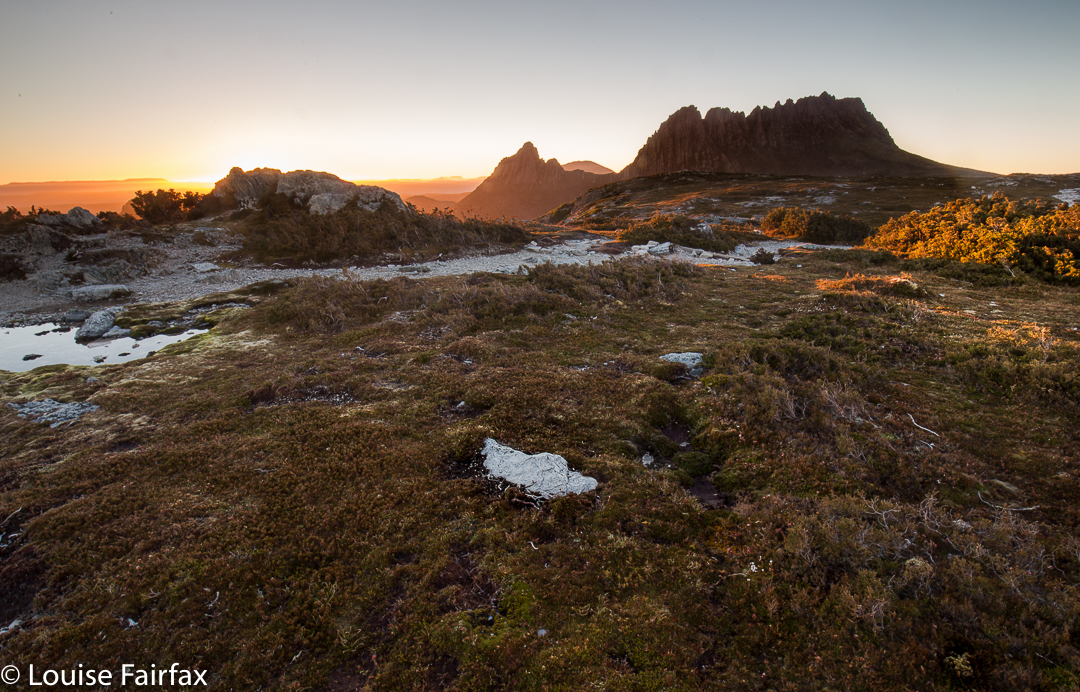
I stumbled across your blog whilst looking for information on the Tarkine. Then I found this article. I want to say thank you! There is nothing that irritates me more than people saying they have “done” a country or an experience. Exploring, travel and adventure is something to be experienced and treasured, not done!
Your images are beautiful and inspiring.
Hi Leigh. WE are of very like mind then, as that really irritates me too, and I comment on it a few times. I have climbed some mountains nine or so times, and each time is different, and you get to know the “friend” mountain in a new situation. Funnily (or not so), I was back on Ossa just this last weekend – it was magnificent. (Will do that post pretty soon. I’m running a bit behind. The weekend before I wandered around the back of Cradle and took some lovely images, so I have to post it first. ). Thanks for your lovely comment. Hope you enjoy the blog. Did the Tarkine article help you at all?
). Thanks for your lovely comment. Hope you enjoy the blog. Did the Tarkine article help you at all?